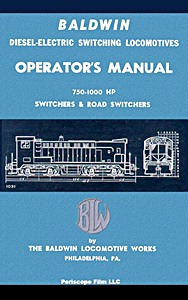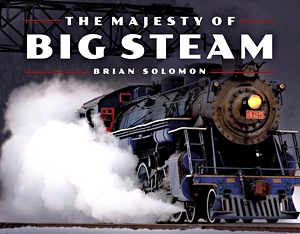Guide to North American Diesel Locomotives
Jeff Wilson's book, Guide to North American Diesel Locomotives, offers more than 300 pages of detailed information on diesel locomotives produced in North America from the 1930s to today. It is an important reference for railfans and model railroaders alike.
An essential guide for model railroaders and train enthusiasts, this comprehensive reference book includes:
- All-time rosters for more than 100 major railroads in the U.S. and Canada through the 1970s
- Spotting features on all major locomotive types produced
- Characteristics and operation of diesel locomotives
- New and updated material (text, charts and, photos)
- 400 color / black & white photos
- And much more!
Details
| Autor: | Jeff Wilson |
|---|---|
| Ausführung: | 306 Seiten, 27.5 x 21 x 1.6 cm, kartoniert |
| Abbildungen: | 400 farbige und s/w-Abbildungen |
| Verlag: | Kalmbach Publishing Company (USA, 2017) |
| ISBN: | 9781627004558 |

Guide to North American Diesel Locomotives
Sprache: Englisch
Erhältlich bei Amazon - sichere Zahlung und schnelle Lieferung
Kaufen bei Amazon DE










